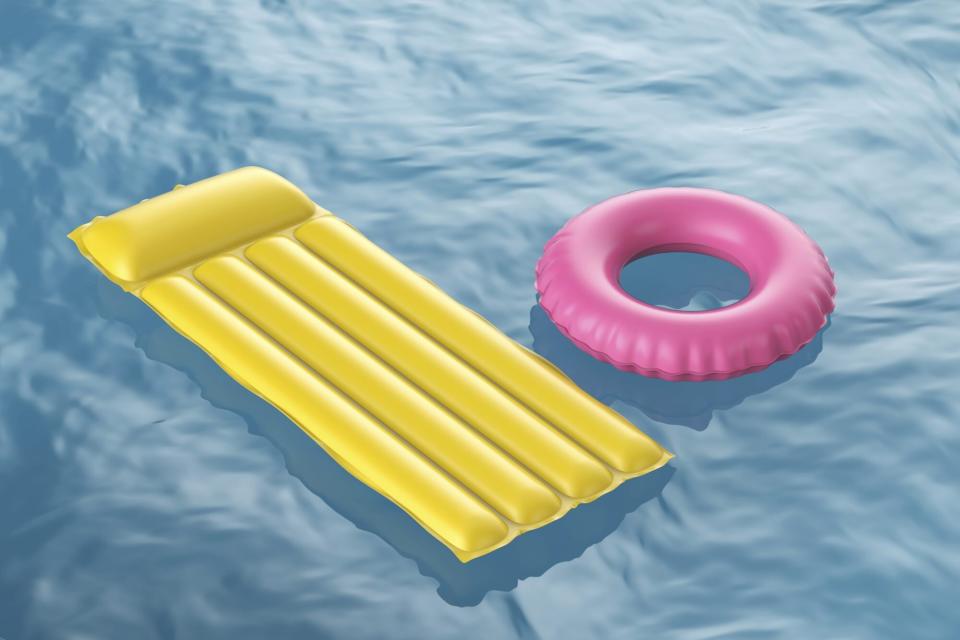Your Guide to Storing Pool Floats, Toys, and Other Inflatables in the Off Season
Long days spent floating atop a gigantic pool float in the water with not a care in the world, pretty much sums up the summer season. However, with the warm weather season officially winding down, it's time to start thinking about how you'll store all of your pool floats, toys, and other inflatables in the off season. "The most important thing is that your pool float should be dry," says Blake Barrett, co-founder of FUNBOY and pool expert. "Pool floats and any poolside accessories need to be dry to protect them from discoloration." He explains that any trapped moisture in a pool accessory is the product's worst enemy as it causes mold and discoloration.
Related: Keep Your Pool Clean and Sparkling All Summer Long with These Underwater Vacuums

MileA / Getty Images
Deflate any inflatables.
When it's time to close up the pool and put away all of your ring floats and pool noodles, the first step is to deflate anything that's currently inflated. Properly deflating your floats depends on its design. Barrett says that some pool floats, including those made by FUNBOY, have rapid valves which allow for quick inflation and deflation. Barrett adds that if you'd like to speed up your deflating process, you can always reverse the flow of air from your electric air pump to have the pump draw the air out of the float.
Clean your floats and toys.
Next, rinse everything off with fresh water. After everything has been thoroughly rinsed, towel-dry the pool floats and toys and leave them in the sun to air-dry; be sure to dry out the bottom of floats where chlorine water can collect, as well. This is a good time to do any spot treatments and vinegar is a safe, all-natural household cleaner with the ability to remove hard water stains.
Fold and store them properly.
After everything is thoroughly dry, storing your pool floats indoors (to protect from extreme cold and direct sunlight) is best. "Pool floats aren't meant for harsh cold temperatures and can crack when exposed to freezing temperatures," says Barrett, adding that a garage is likely the best place to store pool floats and accessories. Store your inflatables in airtight containers and away from any sharp, damaging objects (think: nails and hardware tools) that could poke a hole in them before your first swim of the season next year.

